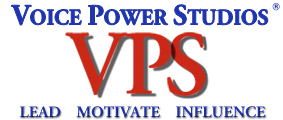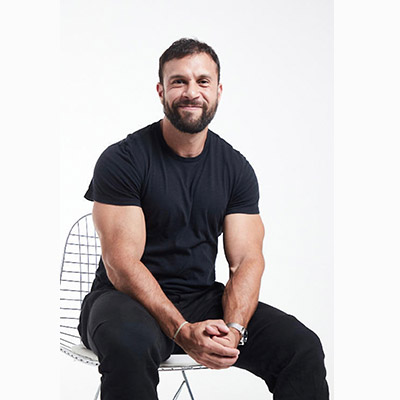Othman Ouenes is one of those foresighted tech entrepreneurs who not only realized early on how critical one’s speaking voice is to one’s business-world success, he also believes even more firmly that the way you speak is vitally important to the success of a startup. (And beyond that, to one’s interpersonal relationships—and even to oneself—as well.)
And just as critical to the success of these startup businesses—having already guided one startup to success, he’s now into his second digital startup, Fidari, a healthcare platform for cancer patients. Here he talks about his path from non-native English speaker to Stanford graduate to startup wunderkind—and how crucial his speaking voice has been all along the way.
Background
I’m originally French, but I came to the US with my parents when I was young. Then I got into Stanford.
I knew I wanted to work in sort of medicine and healthcare but I didn’t want to be a clinician or physician, right? So I focused on healthcare consulting.
I started my first company about 12 years ago, using software to give feedback to physicians on compliance guidelines, then used the same software to run virtual clinical trials. We sold the company, and I started this one—for personal reasons. I had been the caregiver to somebody else with cancer, so I experienced it through the lens of this patient.
Fidari
At Fidari, which means “in my home” in Arabic (I’m actually originally North African), we essentially do two things. First, we provide care-extender services—everything from patient onboarding to virtual navigation to remote patient monitoring at home. The second thing we do is, once some patients start their treatment, we build this marketplace where patients can access virtually all these services: mental health, exercise, oncology, diet, nutrition counseling, all this great stuff. So everything is in one place, and they don’t have to go seek it all out. It’s all there for them.
Finding his voice
I had a really complicated journey with finding my voice—and finding Sandra.
I didn’t speak English, and my parents barely spoke English. We were all self-taught. And early on I had a stutter. Actually, a pretty bad stutter, especially in middle school.
So I had a really hard time finding my voice and just speaking. And because of that, I was afraid of public speaking. But then in high school, I discovered debate and extemporaneous speaking. And I just dove in, into really understanding how to structure speech, how to be able to articulate my thoughts in a way that was clear and understandable to others. Essentially, I developed techniques on how to present and how to speak publicly. I really spent a lot of time on it, and I actually became one of the best executors, which was incredible. When I look back, it’s one of my biggest achievements.
I learned very quickly that if you speak well, people will listen. But being able to present to people is a combination of things, especially listening and understanding your audience. That’s really the biggest key: Who is your audience and who are you speaking to?
Speaking strategies
I always tell younger kids: Start with basic your message, your key messages—as if you're writing a paper. You’re basically starting with your argument. So start your message with a thesis, then give it the three points, and literally tell people: This is my first point. This is my second point. This is the third point.
Speaking, whether it’s with an investor or a customer or even just a personal conversation, you’re basically starting with your argument, then you have the three points you go through. Sometimes being able to slow myself down or stop myself with that point-by-point approach, allows me to be more articulate, and not ramble, which is the death of everything.
Speaking to investors
The second company, Fidari, I told myself I want to build billion-dollar company where we can touch hundreds of thousands of patients. And in order for me to do that, I needed to figure out how to tell a compelling story. So I had to figure out how to sell this idea to investors and to raise cash from investors.
Most entrepreneurs are very technical. They come from research backgrounds. They have this great product, but they’ve never been in settings where they actually have to speak.
Most just have no background in actually presenting, and so much what you have to do as a founder, as an entrepreneur, is tell stories.
When people ask me, What’s your biggest strength as a CEO? Or, What’s the biggest thing you need to be able to be successful? One thing I always tell them is: telling a story. Storytelling, right? Who are you? Because investors don’t just invest in the product, they invest in the team. They want an origin story.
Being able to obviously represent myself and my team has been so important, also being able to say that I can actually stand out there and deliver a speech or a keynote or at some point, talking to incredibly important investors. As technical entrepreneurs especially, people in this space really need to know how to tell a story.
This is where Sandra comes in. She has a very, very compelling value proposition in that way, especially for people who come from very technical backgrounds. Most have never presented in public, or probably don’t have the training to actually tell stories.
Sandra shows you how to do that. Effectively. Successfully.
if you look at people who inspire today—Obama, Jensen Huang, the CEO of Nvidia. When these people talk, it feels comfortable. Those people have probably worked with someone like Sandra.
Even if it’s your company, or your idea, it’s not just you who needs to speak well with others
It’s so important for the team to have somebody who can actually stand up there and talk, especially to potential investors. To raise cash you need to be able speak very clearly and succinctly and present your story. Why are you the best person to do it? What's the product and how are you going to make X amount of money?
Let’s say, some day you get sick. You’re too sick to make that pitch or give that talk. It’s like, Dude, you’ve got to fill in. You have to make this presentation. What would be your pitch to these investors or these people you need, to convince them to back you or buy your product?
You need to be able to have a conversation with someone and listen to that person and then articulate it back to that person what they need, and in a way that’s compelling and persuasive. In this world, we just don’t have enough resources to teach people how to talk and present. That’s where Sandra comes in. She plays an incredible role in doing that.
Sandra’s value
We’re a small team right now. Sandra’s value to our team is that she will help everyone become their own CEO. We’re all selling, we’re all representing the company when we go out, have conversations, show up at these trade fairs. And so everybody needs to be able to very succinctly say what’s our value, what’s our product.
I really want everybody on the team to be able to meetings or presentations or out to dinner or even at their family’s Thanksgiving, to be able to very clearly say, This is why this is important, and this is why it’s important to me.
Sandra’s process helps remind me—and my team: What’s the big vision? Why is this important? Why does this get me out of bed? Finding that inner purpose, through that sort of inner voice, helps people be more motivated, more productive and ultimately become more participatory in everything. Being able to articulate that clearly from sort of your own personal narrative is incredibly important.
Everybody needs to have their own personal injection or way of telling their story—the company’s story. And there is no cookie-cutter way of doing that.
Speaking your way to success
If you can articulate what you do, what you want, if you can talk in a way that’s confident, measured and intelligent, you can do anything.

